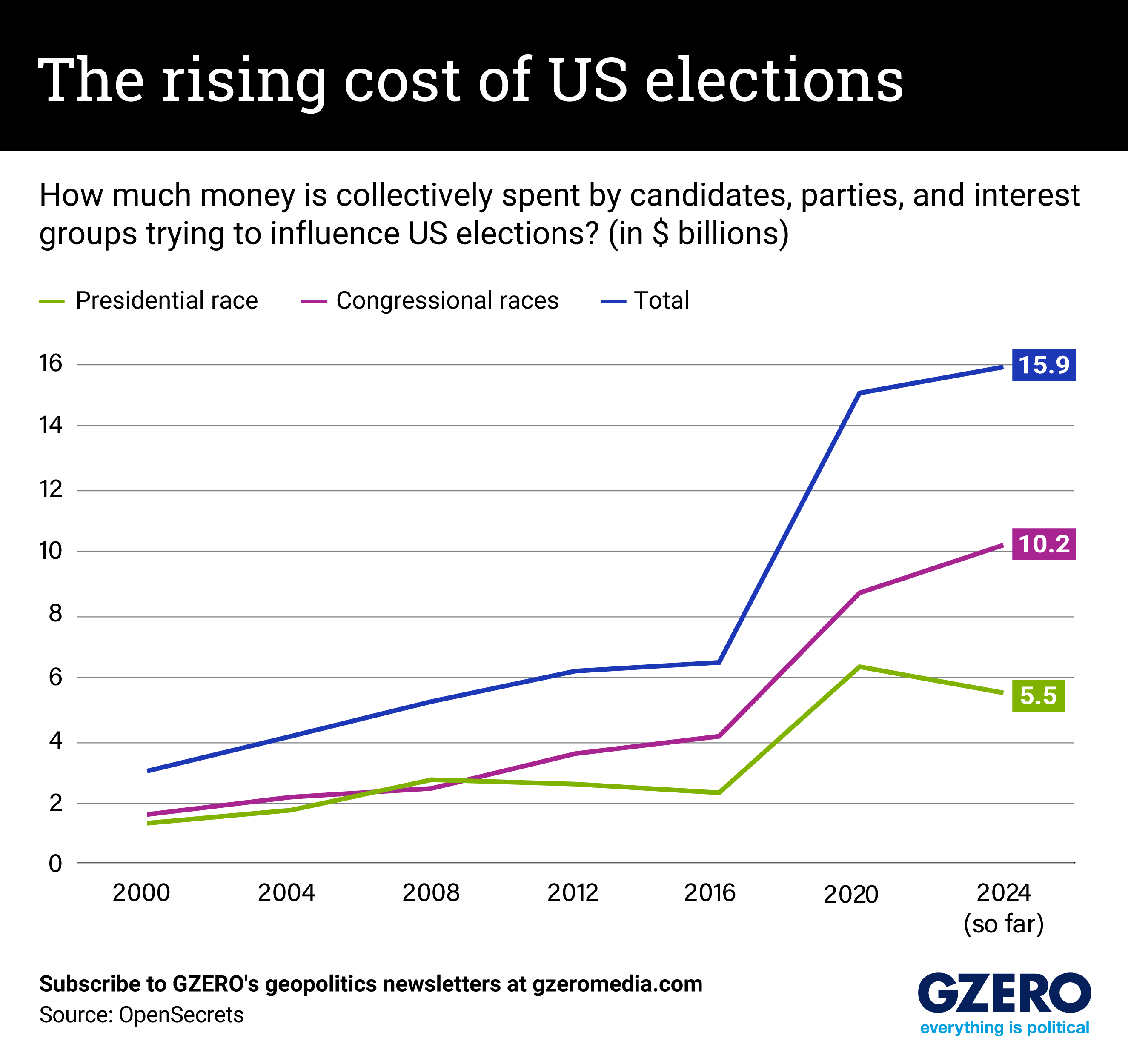The 2024 federal election cycle is on course to be the costliest in US history, surpassing record levels of spending in 2020, according to OpenSecrets, a nonprofit that tracks money in politics. Federal election cycles have been flooded by huge amounts of money for decades, but spending skyrocketed after the Supreme Court’s controversial Citizens United decision in 2010, which held that political spending is a form of protected speech.
Citizens United opened the door for corporations, unions, and other groups to spend unlimited funds on elections – as long as they don’t formally coordinate with candidates or political parties – and paved the way for the creation of super PACs.
Super PACs differ from traditional PACs, or Political Action Committees, which can directly contribute to candidates and political parties (with limits on total contributions).
Elections have not only become more expensive since Citizens United, but they’ve also become less transparent in terms of the sources of spending. This is thanks to what are known as dark money groups, which are generally nonprofits that aren’t required to publicly disclose their donors. Even though super PACs are required to disclose their donors, the funding they receive from dark money groups keeps the original sources hidden.
Does money have too much influence on US politics? Should there be more limits on how much can be spent? We would love to hear your thoughts.
